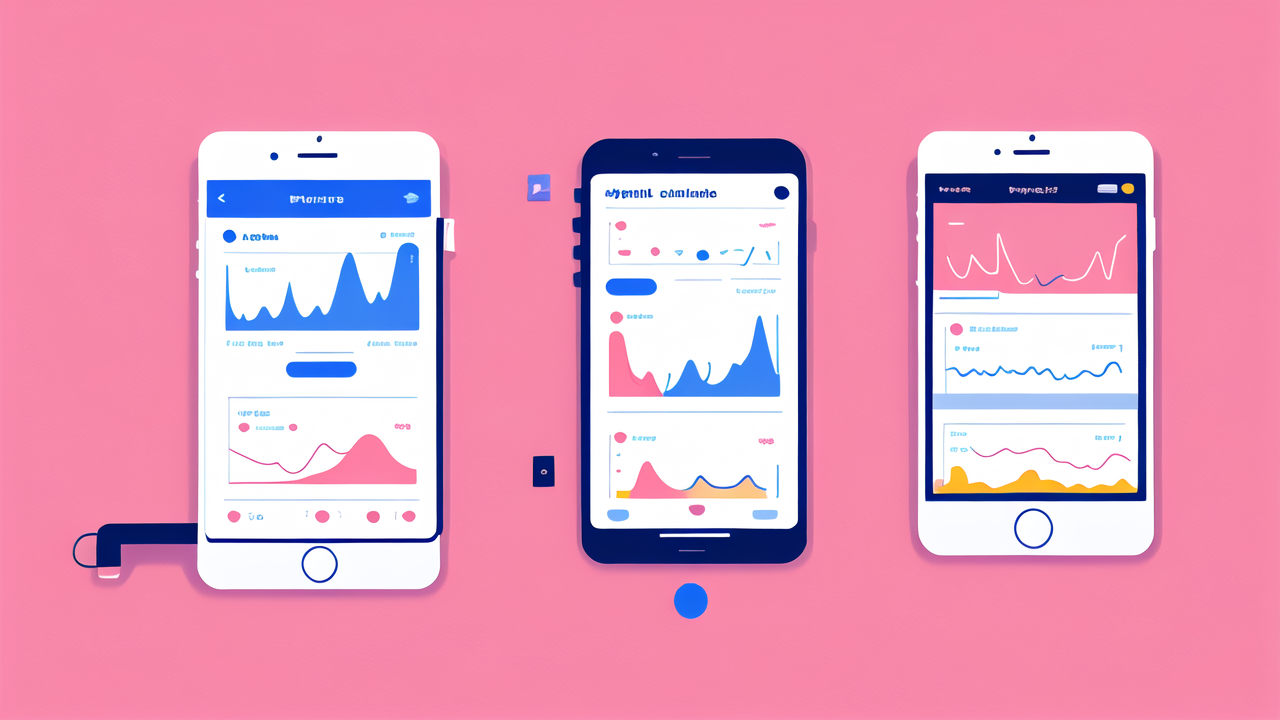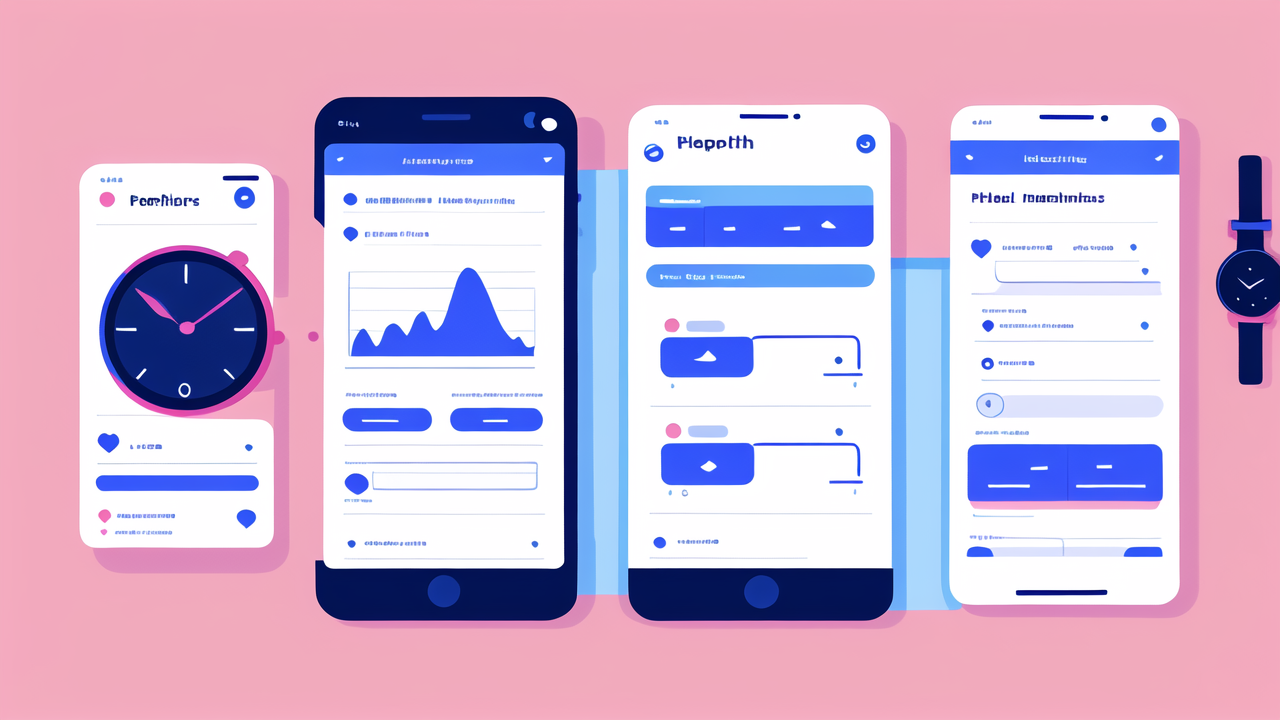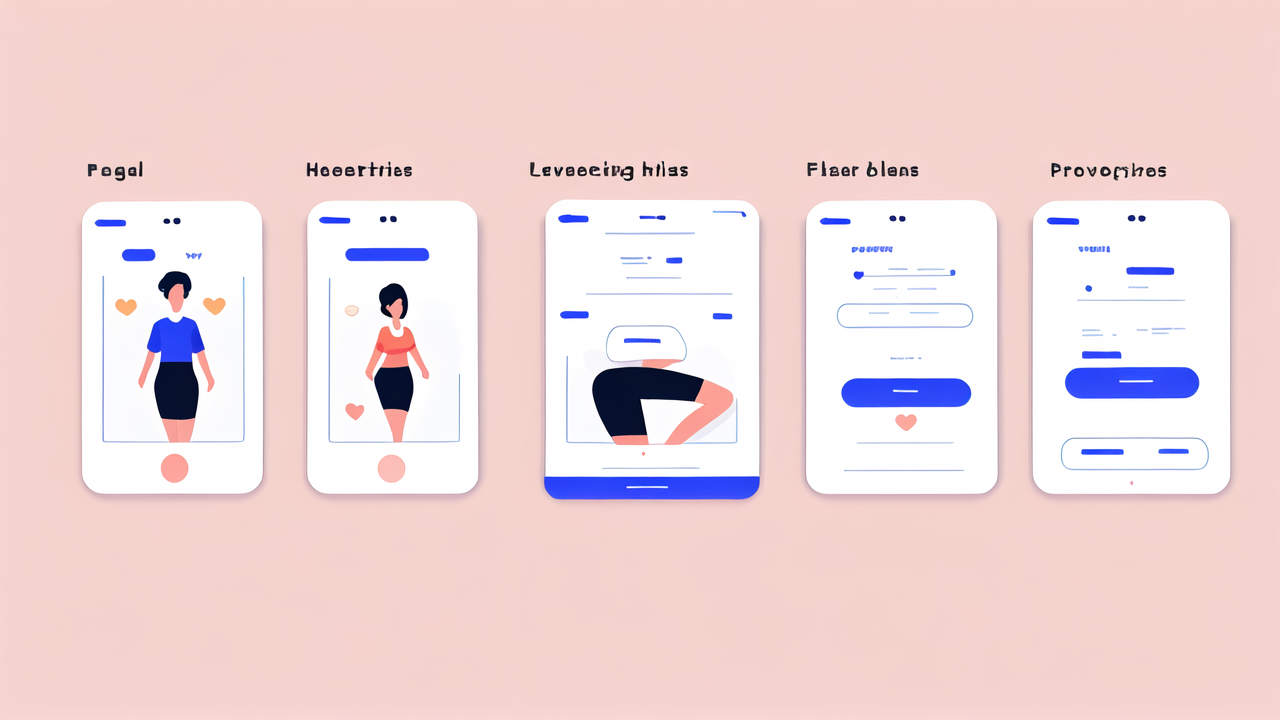Understanding Smart Watch Health Monitoring: A Primer
The Evolution of Smart Watch Technology in Health Care
Smart watches have come a long way in health care. They started as simple step counters. Now, they're advanced health monitors. Early models only tracked basic activity. Today's devices can measure heart rate, sleep patterns, and even blood oxygen levels.

The tech has improved rapidly. Sensors are more accurate. Batteries last longer. Apps are smarter. This evolution has made smart watches valuable health tools. They've gone from fitness gadgets to serious health devices.
Many people now rely on smart watches for daily health tracking. They offer real-time data and insights. This helps users make better health choices. It's like having a mini health lab on your wrist.
Key Features of Modern Health Monitors
Modern smart watches pack a lot of health features. Here are some key ones:
- Heart rate monitoring
- Sleep tracking
- Step counting
- Calorie burn estimation
- Blood oxygen measurement
- ECG readings
- Stress level detection
- Menstrual cycle tracking
These features use advanced sensors. They collect data 24/7. This gives a complete picture of your health. Some watches can even detect falls or irregular heart rhythms.
Many also offer guided breathing exercises. They remind you to move if you've been sitting too long. Some can track specific workouts. They give detailed stats on your performance.
How Smart Watches Enhance Personal Health Management
Smart watches make health management easier and more personal. They give you constant access to your health data. This helps you spot trends and make changes.
For example, you can see how your sleep affects your daily energy. Or how your workout intensity impacts your heart rate recovery. This info helps you make better health decisions.
Smart watches also motivate you to be healthier. They set reminders and goals. They celebrate when you achieve them. This can encourage you to be more active and mindful of your health.
Many watches sync with health apps. This lets you share data with your doctor. It can help catch health issues early. It also makes it easier to track long-term health trends.
Best Practices for Leveraging Health Monitors
Optimizing Your Smart Watch Settings for Health Tracking
To get the most from your smart watch, you need to set it up right. First, make sure all sensors are on. This ensures you're collecting all possible data. Next, set your personal details correctly. Your age, height, and weight affect how the watch calculates health metrics.

Customize your goals. Make them challenging but achievable. This keeps you motivated. Set up notifications for things like move reminders or high heart rate alerts. But don't overdo it. Too many alerts can be annoying.
Choose which data to show on your watch face. Pick the metrics most important to you. This might be steps, heart rate, or active calories. Lastly, make sure your watch is syncing regularly with your phone. This keeps your data up to date.
Integrating Health Monitoring with Your Fitness Routine
Your smart watch can supercharge your fitness routine. Use it to track your workouts. Many watches have modes for different exercises. These give you detailed stats on your performance.
During workouts, use your watch to monitor your heart rate. This helps you stay in the right intensity zone. Some watches can guide you through interval training. They tell you when to work hard and when to rest.
After workouts, review your data. Look at things like calories burned, distance covered, and recovery time. Over time, you'll see how you're improving. This can be very motivating.
Use your watch's sleep tracking to ensure you're getting enough rest. Good sleep is crucial for fitness. If you're not sleeping well, you might need to adjust your workout schedule.
The Importance of Regular Check-Ups and Data Analysis
Collecting health data is great, but you need to use it. Set aside time each week to review your data. Look for patterns and trends. Are you meeting your activity goals? How's your sleep quality? Is your resting heart rate changing?
Don't just focus on one metric. Look at the big picture. For example, if your sleep is poor, it might affect your activity levels. Or if your stress is high, it could impact your heart rate.
Share your data with your doctor during check-ups. It can give them valuable insights into your health. They might spot issues you've missed. Or they can help you set better health goals.
Remember, smart watches are tools, not medical devices. If you notice anything concerning, always consult a healthcare professional. Regular medical check-ups are still important, even with a smart watch.
Advanced Techniques and Insights from Fitness Professionals
Using Health Monitoring Data to Inform Exercise Programs
Fitness pros are using smart watch data in clever ways. They're creating more personalized workout plans. For example, they might adjust your training based on your sleep quality. If you've had a bad night, they might suggest a lighter workout.

Heart rate data is especially useful. It helps trainers set the right intensity for your workouts. They can see if you're pushing too hard or not hard enough. This helps prevent overtraining and injuries.
Some trainers use recovery metrics to plan rest days. If your watch shows you're not fully recovered, they might schedule an easy day. This helps you avoid burnout and improves long-term progress.
Smart watch data also helps track progress over time. Trainers can see if your fitness is improving. They might notice that your resting heart rate is dropping. Or that you're burning more calories during workouts. This helps them adjust your program for better results.
Predictive Health Analytics: What Experts Are Saying
Experts are excited about the future of health analytics. Smart watches are getting better at predicting health issues. Some can detect early signs of conditions like atrial fibrillation or sleep apnea.
Researchers are working on even more advanced features. They're developing algorithms that might predict things like:
- Stress levels
- Risk of heart problems
- Onset of infections
- Changes in mental health
These predictions could help prevent health issues before they become serious. Experts say this could revolutionize preventive healthcare.
However, they also warn about privacy concerns. Health data is sensitive. It's important to keep it secure. Users should be careful about who they share their data with.
Future Trends in Smart Watch Health Monitoring
The future of smart watch health monitoring looks exciting. Here are some trends experts predict:
- More advanced sensors: Future watches might measure blood sugar or blood pressure.
- AI-powered health coaching: Watches could give personalized health advice based on your data.
- Integration with medical records: Your watch data might sync directly with your doctor's systems.
- Mental health tracking: Watches might detect mood changes and stress levels more accurately.
- Improved accuracy: Sensors will get more precise, making the data more reliable.
Experts also think smart watches will play a bigger role in clinical trials. They can collect real-world data over long periods. This could speed up medical research.
As technology improves, smart watches will become even more powerful health tools. They'll help us understand our bodies better and make healthier choices. But remember, they're meant to support, not replace, professional medical care.




Leave a comment
This site is protected by hCaptcha and the hCaptcha Privacy Policy and Terms of Service apply.